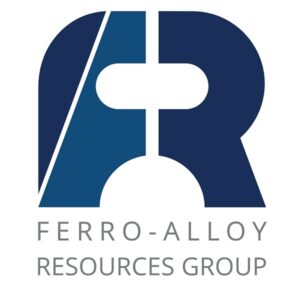Ferro-Alloy Resources Ltd (LON:FAR), the vanadium producer and developer of the large Balasausqandiq vanadium deposit in Southern Kazakhstan, has announced the full results of the updated mineral resource estimate from SRK Consulting Ltd prepared in accordance with the terms and guidelines of the Australian Code for the Reporting of Exploration Results, Mineral Resources and Ore Reserves for Ore-Body 1 at the Balasausqandiq deposit.
MRE Highlights Include:
· An Indicated Mineral Resource of 32.9 million tonnes for OB1, at a mean grade of 0.62% V2O5, reported at a marginal cut-off grade of 0.4% V2O5 – equating to 203,364 contained tonnes of vanadium pentoxide (“V2O5“)
· An increase of 8.6 million tonnes (35.4%) of mineral resource and an increase of 38,058 tonnes (23%) of contained V2O5 by comparison with the estimate contained in the Company’s 2018 Competent Persons Report
· The results of the previously reported infill drilling and trenching programmes completed during 2021/22 have been successful in converting 100% of the Resources to Indicated for the OB1 deposit. No Measured or Inferred Resource are stated
· A total of 75 diamond core holes and 88 trenches were used to define the Resource (a reduction of drill section spacing to 250 metres from the original 500 metres increased confidence)
· Confirmation that there are reasonable prospects for eventual economic extraction by constraining the Mineral Resources to an optimised open pit shell (50 degree slopes and a revenue factor of 1) using a selling price for 98% V2O5 flake of USD9.82 /lb
Commenting on the MRE, Nick Bridgen, CEO of Ferro-Alloy Resources said:
“We are delighted with the results of this MRE for OB1 which has not only upgraded the classification of all the resources to the Indicated category, but increased the contained V2O5 at OB1 by 23%. Exploration of OB2, 3 and 4 has been completed and the mineral resource estimate for those ore-bodies is expected later this year.
We look forward to publishing the results of the feasibility study for Stage 1 of the Balasausqandiq project, expected to be completed in the final quarter of 2023, with the feasibility study for Stage 2 to follow in 2024.”
Overview of the April 2023 Mineral Resource Estimate for Balasausqandiq OB1 Deposit
The MRE for the Balasausqandiq OB1 vanadium deposit was based on the historic and latest infill trench and diamond drill programme completed in 2021-2022. The Resource has been estimated from 35 new drillholes and 29 new trenches and was aimed to verify historic diamond drilling and trenching. A total of 75 diamond core holes and 88 trenches have now been used to define the Resource.
The current estimate is based on diamond core and trench profiles sections at a 250 m spacing along the strike of the OB1 deposit. A pit optimization study has also been conducted to assess the reasonable prospects for eventual economic extraction. The latest TetraTech testwork shows high recoveries in the order of 85 to 95% V2O5 across all grade ranges. The pit optimisation used an overall slope angle of 50 degrees, a processing recovery of 85% and a revenue factor of 1.0 for a selling price of USD9.82 /lb to give a conservative evaluation and achieve the head grade for which the 85% processing recovery was applicable at the marginal cut-off grade.
Results of the updated MRE are an Indicated Mineral Resource of 32.9 million tonnes (Mt) at a mean grade of 0.62% V2O5 reported at a marginal cut-off grade of 0.4% V2O5.
No Measured or Inferred Resources are reported. Table 1 below presents a summary of the OB1 MRE broken down by metal and Resource Classification.
Table 1. Summary Report for April 2023 MRE OB 1 Resource

Notes for Mineral Resource Estimate:
· Mineral Resources have an effective date of 1st April 2023
· Reported Mineral Resources are those remaining below the depleted current historic pits and topographic surface as of 1st April 2023
· All Resources are reported above a cut-off grade of 0.4% V2O5
· The MRE established that there are reasonable prospects for eventual economic extraction by constraining the Mineral Resources to an optimised open pit shell (50 degree slopes and a revenue factor of 1) using a selling price for 98% V2O5 flake of USD9.82 /lb
· Tonnages are reported in metric units, grades in percent (%). All contained metal is reported in tonnes. Tonnages, grades, and contained metal totals are rounded appropriately. Rounding as required by reporting guidelines may result in apparent summation differences in Table 1
Table 2. Comparison of 2018 and 2023 MRE Estimates
| Estimate | Tonnage (Mt) | % V2O5 | Contained V2O5 (t) |
| 2018 MRE COG 0.0% (Ind + Inf) | 24.3 | 0.68 | 165,306 |
| 2023 MRE Indicated COG 0.4% (Indicated) | 32.9 | 0.62 | 203,364 |
The Competent Person for the declaration of Mineral Resources is Mr Peter Gleeson (CEng, MIMMM, AIGS), an employee of SRK. The Mineral Resource estimate was prepared by a team of consultants from SRK.


